SFARI Gene
Recent articles
Cell ‘antennae’ link autism, congenital heart disease
Variants in genes tied to both conditions derail the formation of cilia, the tiny hair-like structure found on almost every cell in the body, a new study finds.
Cell ‘antennae’ link autism, congenital heart disease
Variants in genes tied to both conditions derail the formation of cilia, the tiny hair-like structure found on almost every cell in the body, a new study finds.
Sequencing study spotlights tight web of genes tied to autism
The findings, shared in a preprint, help to illuminate how a large and heterogeneous group of genes could be involved in autism.
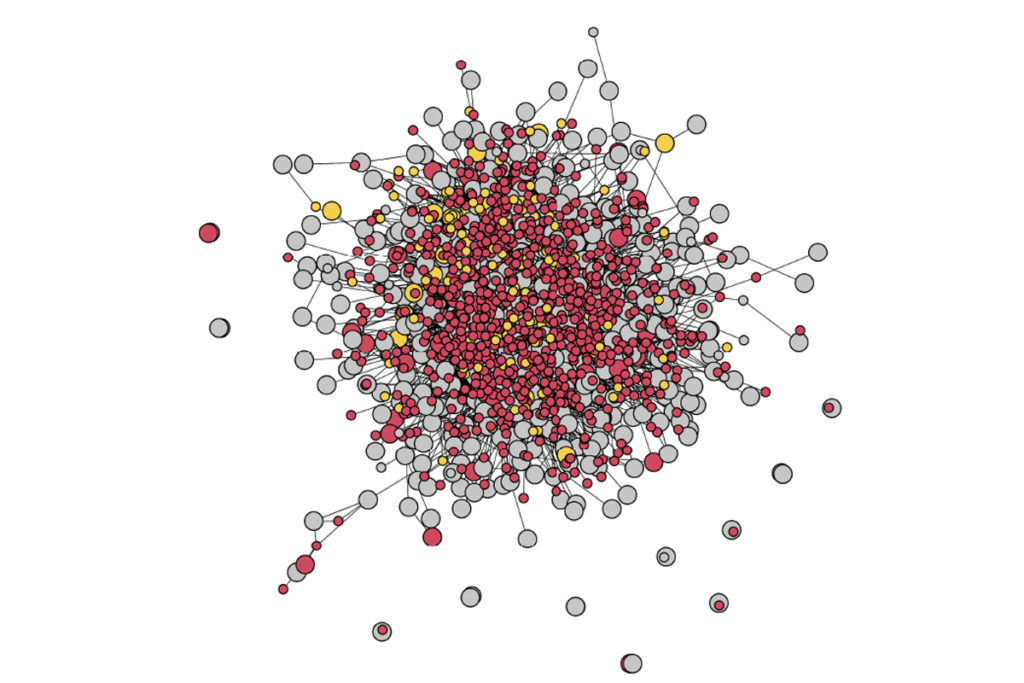
Sequencing study spotlights tight web of genes tied to autism
The findings, shared in a preprint, help to illuminate how a large and heterogeneous group of genes could be involved in autism.
‘VIP’ interneurons may drive autism traits in Dravet syndrome
The inhibitory cells misfire and contribute to social difficulties in mice that model the syndrome.
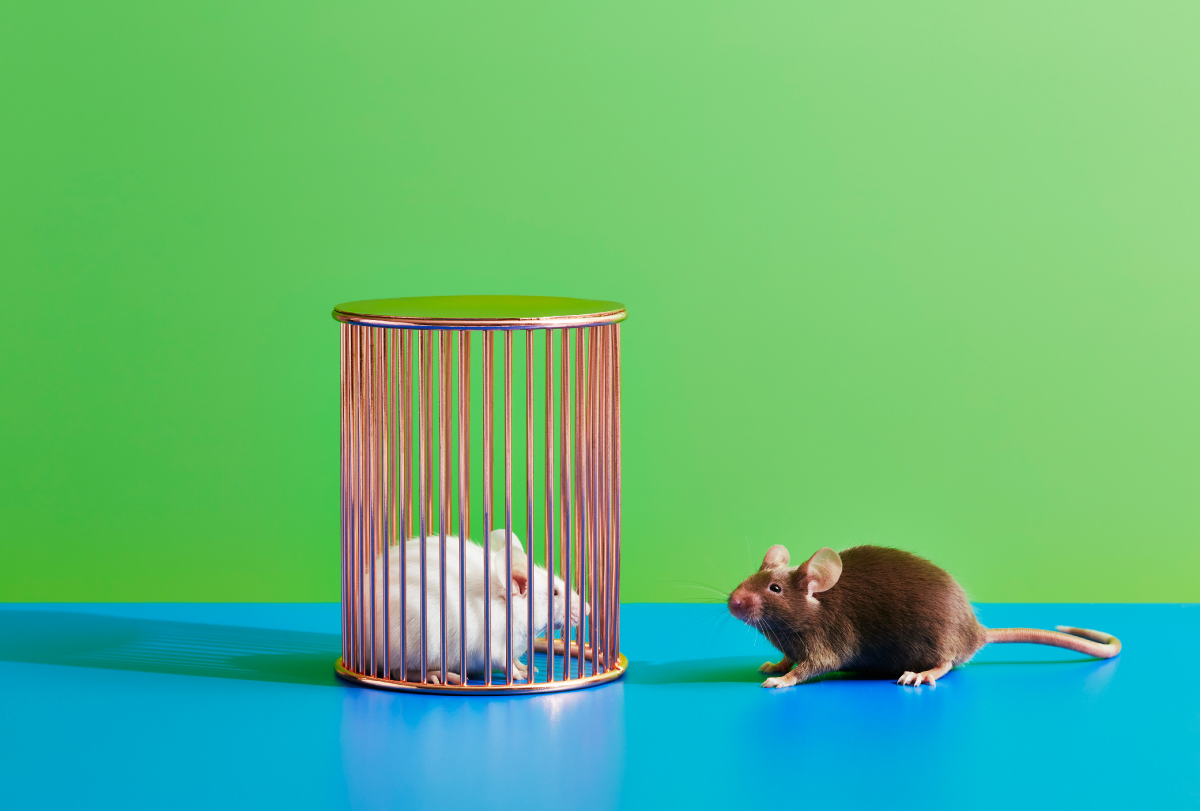
‘VIP’ interneurons may drive autism traits in Dravet syndrome
The inhibitory cells misfire and contribute to social difficulties in mice that model the syndrome.
Plethora of protein-making machines in neurons may underlie fragile X
An overabundance of ribosomes drives an imbalance of proteins produced from long and short genetic transcripts in a mouse model of fragile X syndrome.
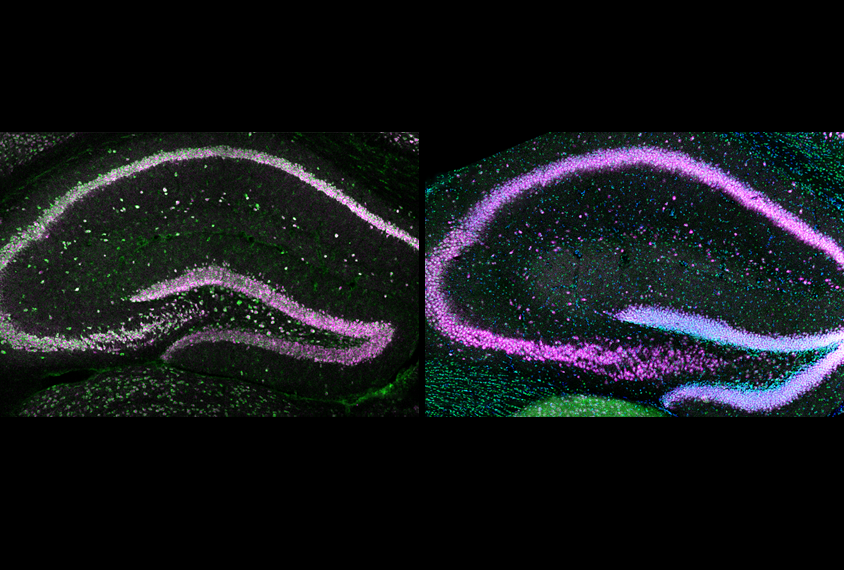
Plethora of protein-making machines in neurons may underlie fragile X
An overabundance of ribosomes drives an imbalance of proteins produced from long and short genetic transcripts in a mouse model of fragile X syndrome.
Evolutionary approach reveals impact of missense variants in autism
Cross-species comparisons can help make sense of subtle genetic variants in people with autism and identify hundreds of new genes that may contribute to the condition.
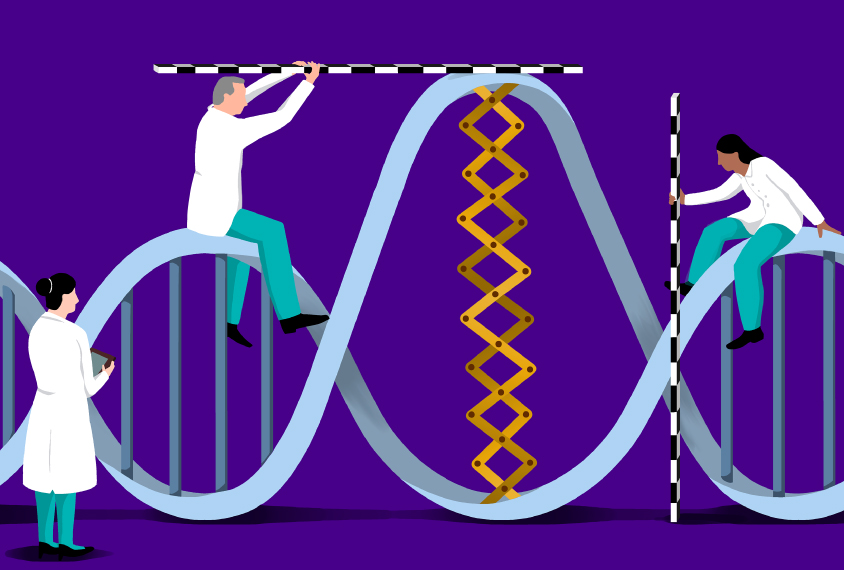
Evolutionary approach reveals impact of missense variants in autism
Cross-species comparisons can help make sense of subtle genetic variants in people with autism and identify hundreds of new genes that may contribute to the condition.
New ranking system flags clinically relevant ‘autism genes’
A novel method to evaluate the strength of the evidence linking autism to specific genes could reveal which ones are most useful to screen for.
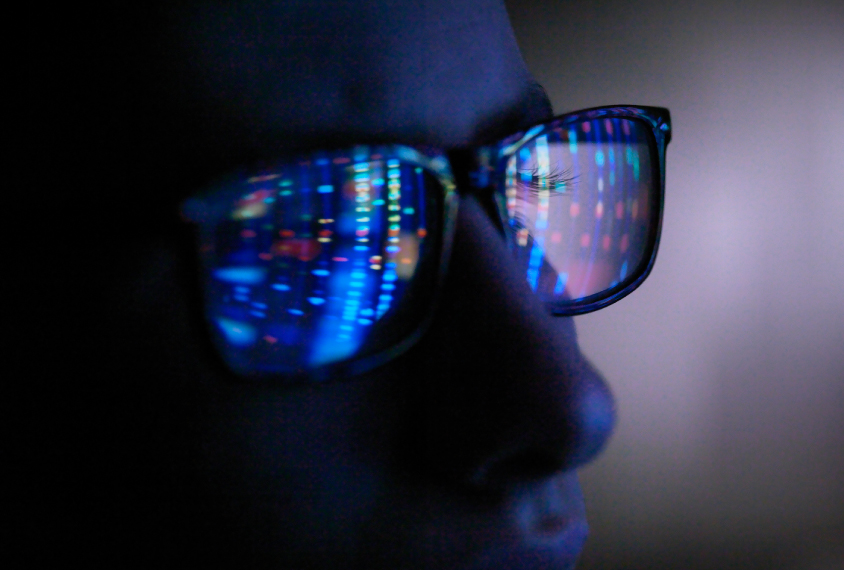
New ranking system flags clinically relevant ‘autism genes’
A novel method to evaluate the strength of the evidence linking autism to specific genes could reveal which ones are most useful to screen for.
‘Antisocial’ bees point to ancient roots for some autism genes
Honey bees that fail certain social tests have genetic profiles similar to those of people with autism.
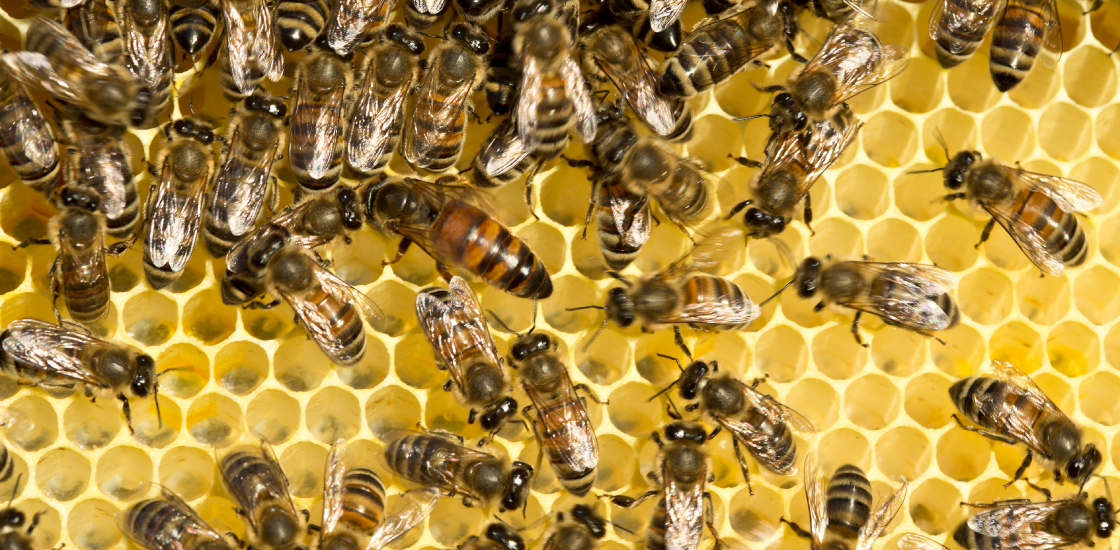
‘Antisocial’ bees point to ancient roots for some autism genes
Honey bees that fail certain social tests have genetic profiles similar to those of people with autism.
Family groups play key role in advancing autism research
Families need more support from researchers in order for their heroic efforts to be optimally effective.
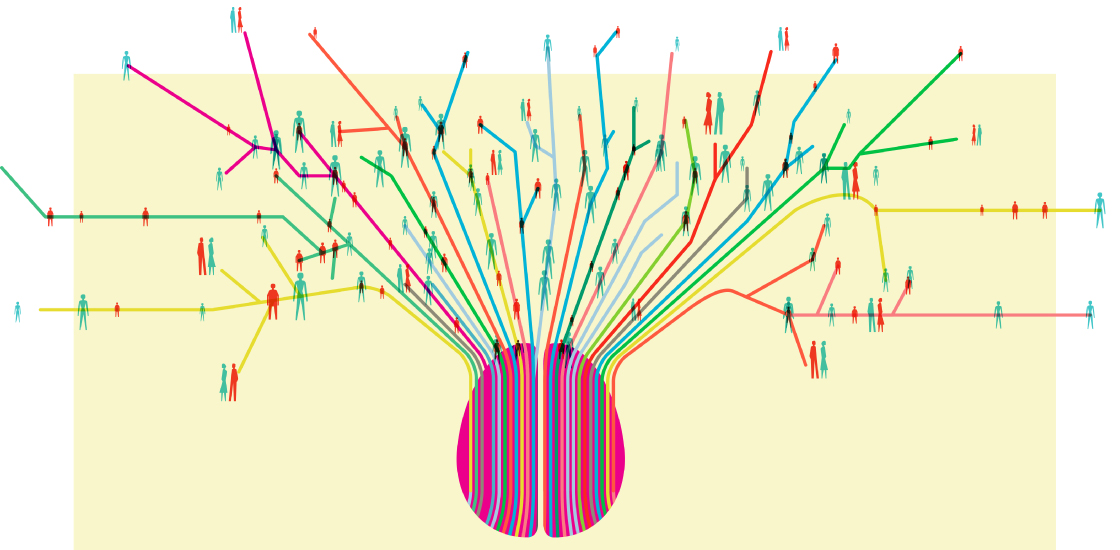
Family groups play key role in advancing autism research
Families need more support from researchers in order for their heroic efforts to be optimally effective.
Control centers for genes rife with autism-linked DNA blips
DNA sequences called enhancers — which boost the expression of genes from within or outside them — are enriched for genetic variants linked to autism, suggests a new study. The finding may help researchers understand how variants outside genes contribute to autism.

Control centers for genes rife with autism-linked DNA blips
DNA sequences called enhancers — which boost the expression of genes from within or outside them — are enriched for genetic variants linked to autism, suggests a new study. The finding may help researchers understand how variants outside genes contribute to autism.
Gene networks offer entry point to unraveling autism
By mapping the connections between autism genes, researchers are finding clues to the disorder’s origins. The key, they say, is to begin without bias.

Gene networks offer entry point to unraveling autism
By mapping the connections between autism genes, researchers are finding clues to the disorder’s origins. The key, they say, is to begin without bias.
Explore more from The Transmitter
Lack of reviewers threatens robustness of neuroscience literature
Simple math suggests that small groups of scientists can significantly bias peer review.

Lack of reviewers threatens robustness of neuroscience literature
Simple math suggests that small groups of scientists can significantly bias peer review.
Dendrites help neuroscientists see the forest for the trees
Dendritic arbors provide just the right scale to study how individual neurons reciprocally interact with their broader circuitry—and are our best bet to bridge cellular and systems neuroscience.

Dendrites help neuroscientists see the forest for the trees
Dendritic arbors provide just the right scale to study how individual neurons reciprocally interact with their broader circuitry—and are our best bet to bridge cellular and systems neuroscience.
Two primate centers drop ‘primate’ from their name
The Washington and Tulane National Biomedical Research Centers—formerly called National Primate Research Centers—say they made the change to better reflect the breadth of research performed at the centers.

Two primate centers drop ‘primate’ from their name
The Washington and Tulane National Biomedical Research Centers—formerly called National Primate Research Centers—say they made the change to better reflect the breadth of research performed at the centers.